 What to Do If You Smell Gas in Your Home
What to Do If You Smell Gas in Your Home
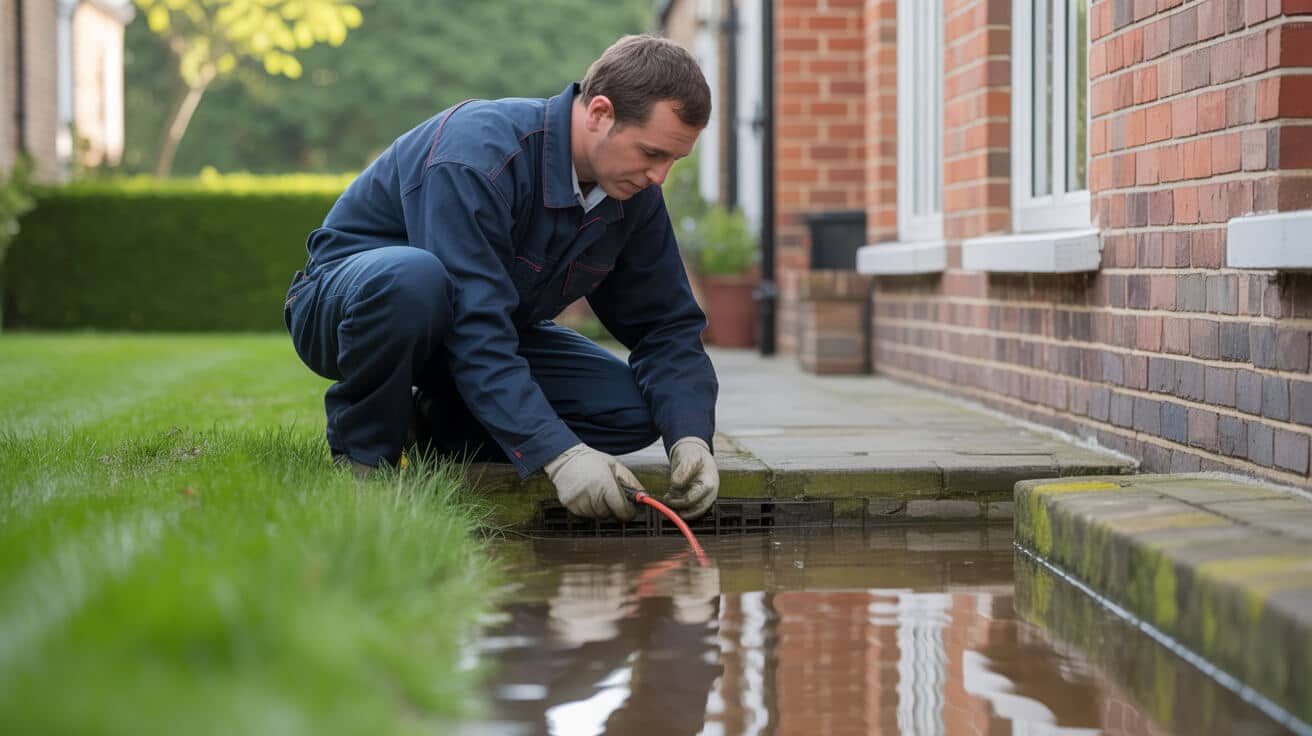
What Should You Do If You Smell Gas in Your Home? (UK Engineer-Backed Action Guide)
If gas enters your home, you don’t get the luxury of “maybe later.” Second-guessing, hoping, or fumbling for advice can turn a minor issue into a life-altering—or building-ending—disaster for you, your family, your tenants, or everyone in a block. As someone responsible for property, you need an engineer-backed playbook: no delays, no doubts. This guide is written for homeowners, landlords, letting agents, commercial building managers, and local authorities. Every step is built from WRAS, Gas Safe, and UK regulatory standards, so you can act with total confidence and zero hesitation the moment you smell gas.
“Most gas hazards only give you one warning—how you act in the next five minutes is what matters.”
How Can You Spot a Gas Leak Before It Gets Dangerous?
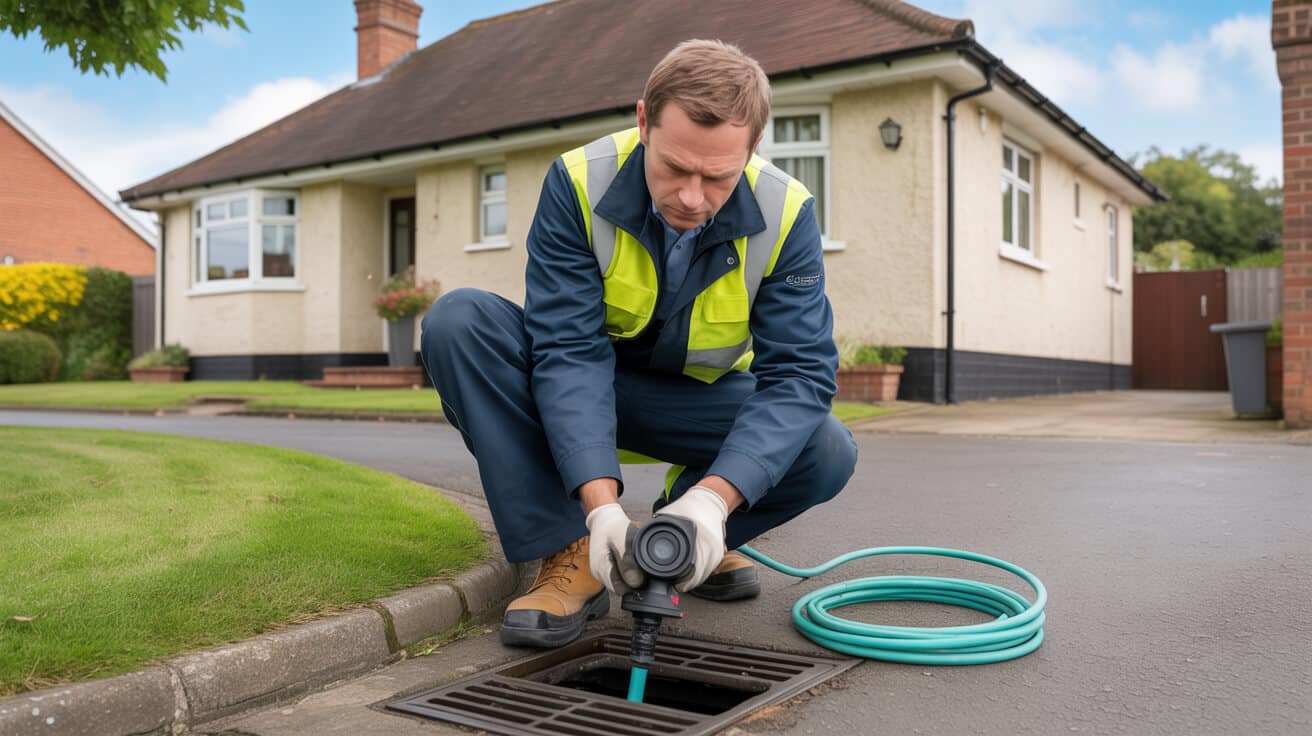
The sniff of gas in a property is not something you rationalise, brush aside, or pin on “the neighbour’s BBQ.” UK mains gas is dosed with a powerful smell—mercaptan—so even the faintest trace stands out. But danger isn’t always obvious: you must spot small clues that regular folks ignore because every warning sign is a signal to act, not debate.
What Signs Should Trigger Immediate Action?
- *That classic “rotten eggs” or sulphur odour*—in a hallway, kitchen, metre cupboard, or even outside near pipes.
- *Strange hissing, whistling, or rushing air* at appliances or pipework.
- *Physical symptoms*: unexplained dizziness, headaches, nausea, erratic breathing that gets better fresh outdoors (see [NHS, 2023](https://www.nhs.uk/live-well/healthy-body/carbon-monoxide-poisoning/)).
- *Sudden dead plants* or oily, bubbling puddles above external pipes.
- *Carbon monoxide alarm beeping, or several people/animals unwell together*.
“When your senses tell you something’s wrong, trust them—hesitation is what puts people in hospital, not false alarms.”
The law doesn’t distinguish between “minor” and “major” leaks (Gas Safety (Installation and Use) Regulations 1998). If you think you smell gas, the risk is real. The duty of care for every property owner or agent is to treat every sign—however mild—as a live emergency.
Should You Ventilate First or Get Out Immediately?
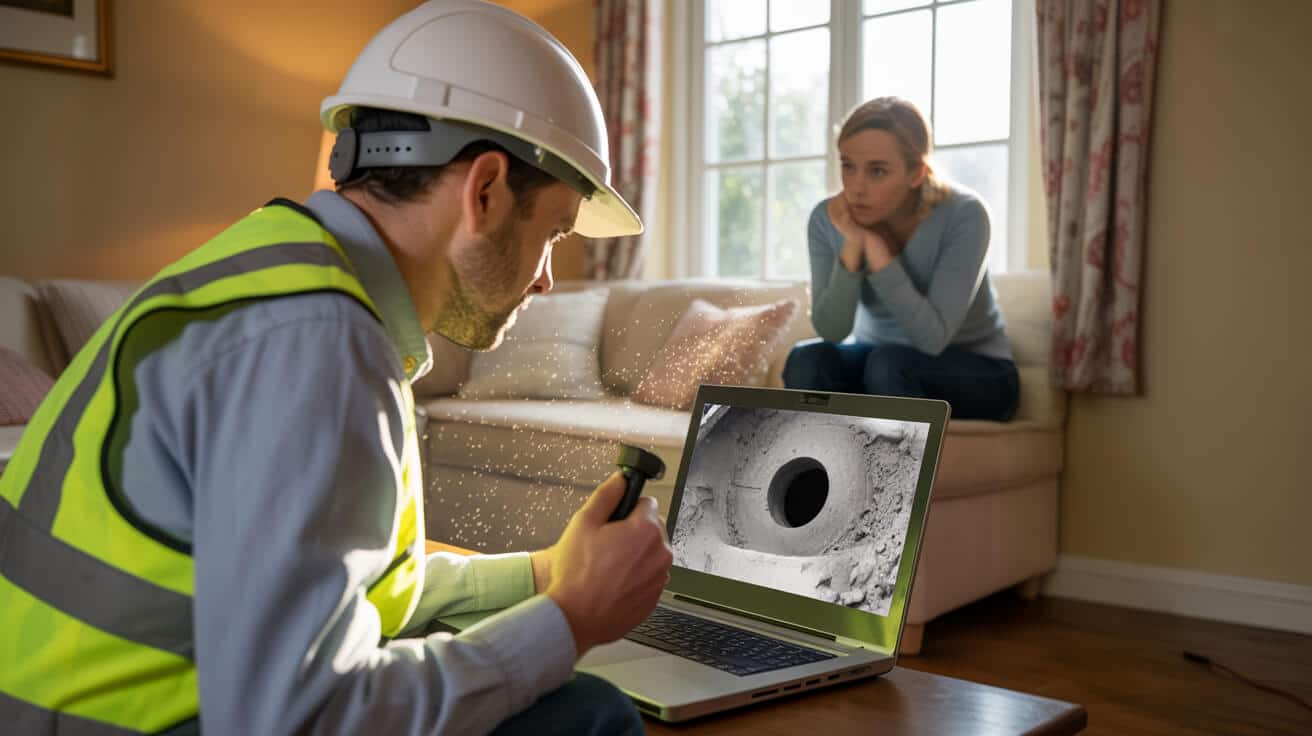
The “open a window” advice is everywhere, but it’s not a free pass to wander through clouds of gas. If the gas odour is overwhelming, stings your eyes or nose, or makes you cough: don’t linger. The only safe move is an orderly, speedy exit, possibly opening an external door or ground-floor window as you go—but never passing through heavy fumes.
Clear vs. Danger: Deciding When to Air Out
- *If the smell is mild* and you can access windows/doors without walking through strong gas: open as many as possible for airflow.
- *If you feel dizzy, ill, or the gas is strong*: evacuate straight away. Leave all windows, fans, and switches untouched.
Never switch on extractor fans or flick light switches. Even a tiny spark can ignite a volatile air mix (SGN Guidance). If the gases are pooling low (cellar, metre box), don’t risk entering: get everyone out and shut doors behind you on exit.
“Never be the person who says ‘just a second’ and goes back for a window—save that level of care for people, not property.”
How, When, and Why Should You Shut Off the Gas?
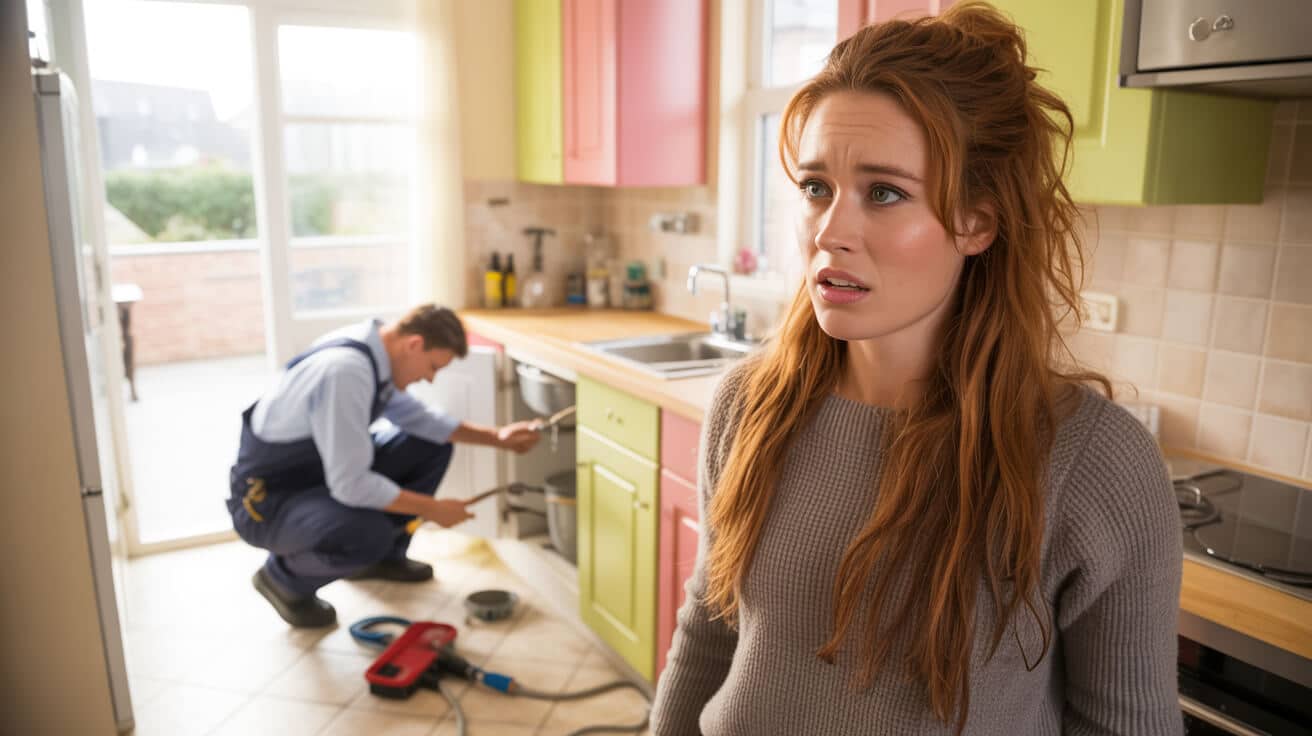
Isolation is powerful—if you know where your main gas shutoff valve is and can access it safely without moving through dense gas zones. Most homes have a yellow or red handled lever near the metre—inside flats or in exterior metre boxes. If you ever have to think twice, err on the side of escape.
Safe Isolation Steps (If and Only If It’s Safe)
- Find the shutoff (usually near the metre, under stairs or outside in a wall box).
- Turn the lever so it’s at 90° (across the pipe)—this stops flow from the mains.
- If you detect strong fumes, feel light-headed, or experience any symptoms mid-action, stop and evacuate instantly.
Do not attempt to patch, tape, or fix anything. Only certified Gas Safe engineers may touch, repair, or test pipework or appliances (Gas Safe Register). DIYing—even re-lighting a pilot—voids insurances, risks fines, and puts lives on the line.
“You don’t win points for bravery with gas—better one safe exit than a perfect shutoff gone wrong.”
Who Must Leave, and How Do You Protect Everyone Fast?
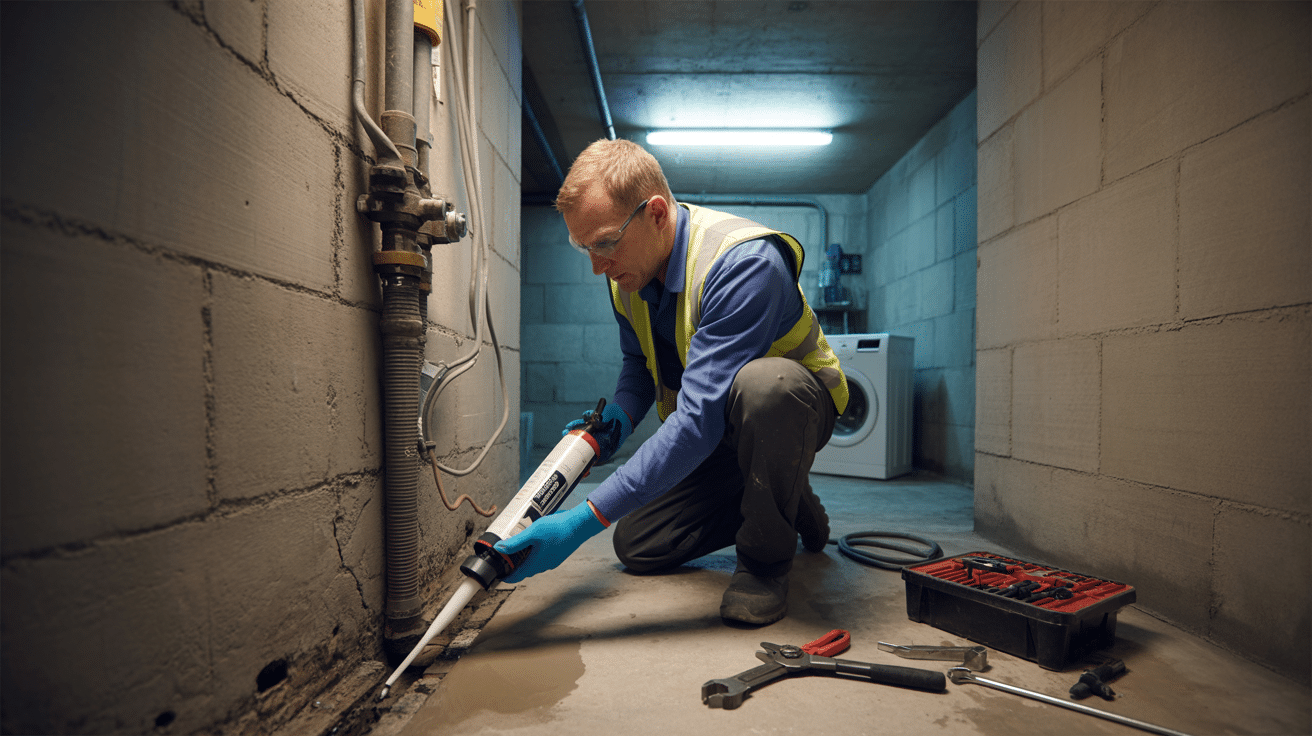
Nobody stays behind. Not kids dreaming, not staff finishing a call, not pets curled up under a radiator. Gas can sink or rise fast; it doesn’t wait. Move all people and animals to at least 10 metres distance, preferably outdoors and upwind. If you’re in a flat, use the stairs—never the lift. Knock neighbours in adjoining properties, especially those with kids, elderly, or vulnerable residents.
If the smell clears outside, resist all temptation to “nip back in,” fetch electronics, paperwork, or check appliances. Emergency services alone decide when it’s safe. Stay outside, no matter how impatient you are.
“Memories are made with people, not lost with paperwork. Your job is to get out and stay safe until cleared.”
Who Do You Call—and How Do You Tackle the Emergency Line Effectively?
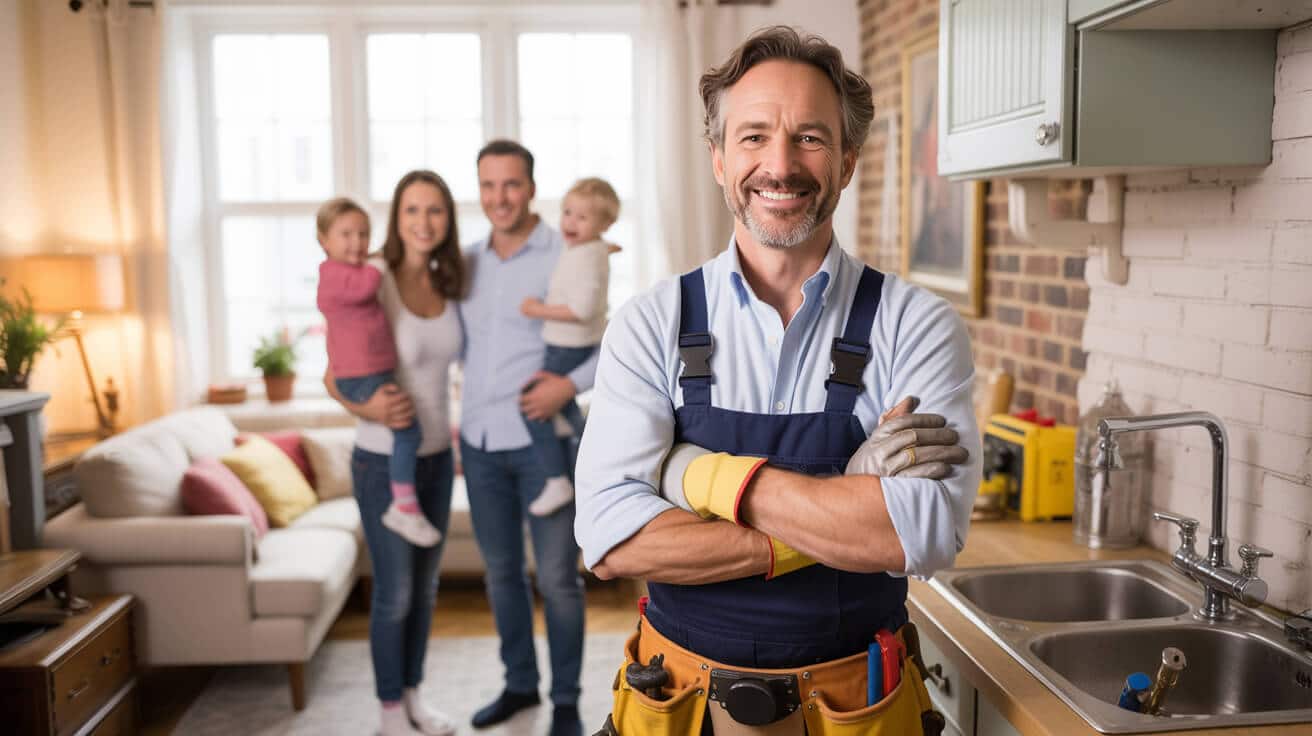
As soon as you’re out and away, call the National Gas Emergency Service: 0800 111 999 (24/7, always free). Relay UK users: 18001 0800 111 999. If anyone is badly injured, unconscious, or you see fire, call 999 first.
How to Get Fast, Decisive Emergency Response
- Have your full address and postcode ready; if you live in flats, include the flat number.
- Report what you saw and smelt, and mention if anyone is or was feeling ill.
- Tell them if you could shut off the supply—but do not go back to try if you couldn’t.
- Report if anyone is especially vulnerable (kids, medical, elderly).
- Stay on the line until told otherwise, and follow every instruction to the letter.
Emergency services may advise you to alert more neighbours, move even further, or avoid areas where gas is pooling. Write down your incident number too; you’ll need it for insurers and compliance logs.
Who Is Allowed to Repair, Certify, and Re-Open Your Gas System?
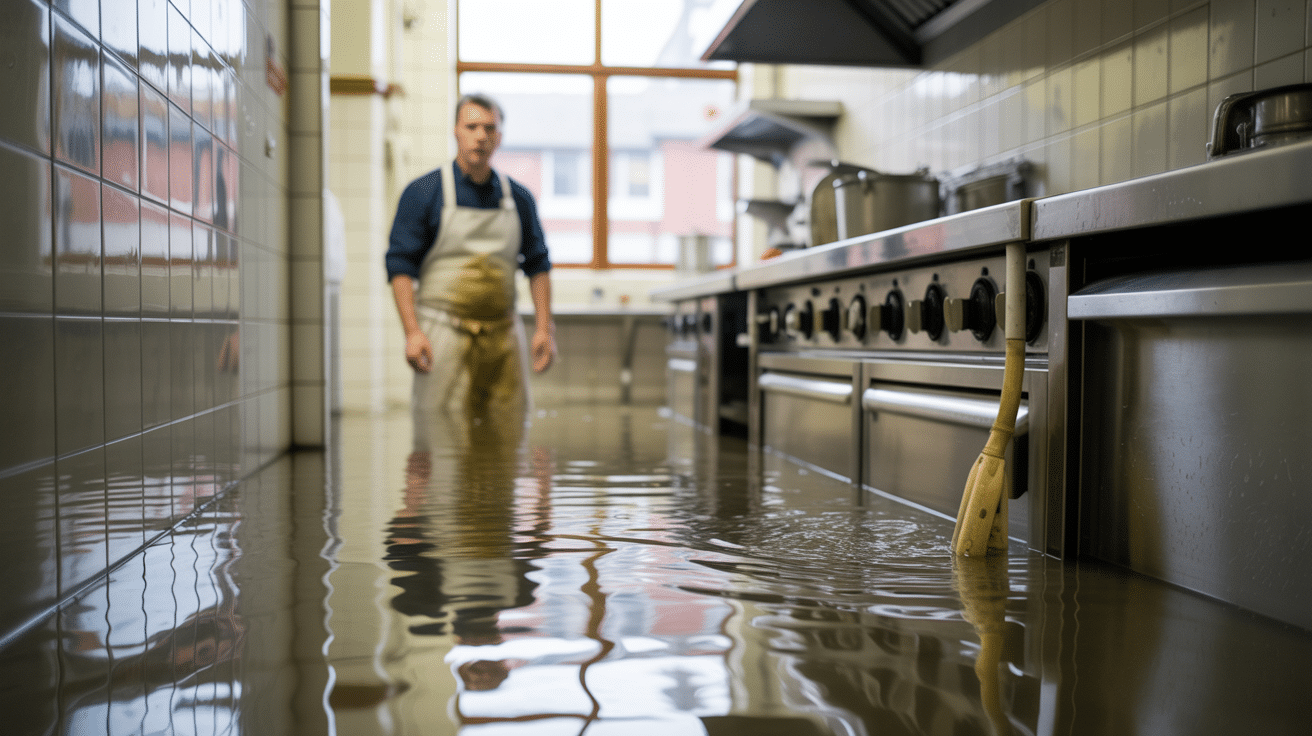
Repairs, safety checks, and the all-clear must be carried out by a Gas Safe Registered engineer. For landlords and property agents, there’s no legal workaround, and insurance is void if you use anyone else. Always check the Gas Safe ID—no ID, no entry, no work.
Essential Post-Repair Protections
- Every fix is logged—before and after photos, part codes, time and date, signed by the engineer.
- WRAS-approved parts and full certification for any swap, change, or repair.
- Landlords/agents must ensure a valid Gas Safety Certificate (CP12) is renewed annually, and stored for at least two years ([GOV.UK Gas Safety Rules](https://www.gov.uk/private-renting/your-landlords-safety-responsibilities)).
- Keep every bit of paperwork—you’ll need it if there’s ever a re-inspection, compliance audit, complaint, or insurance claim.
Plumbers 4U engineers always present Gas Safe ID, document each job, and log it for your records and compliance. It’s not just peace of mind; it’s your legal shield.
“Proof beats promises. Safety and paperwork are your double lock on every property you own or manage.”
Why Are Switches, Plugs, and Phones So Dangerous During a Gas Leak?
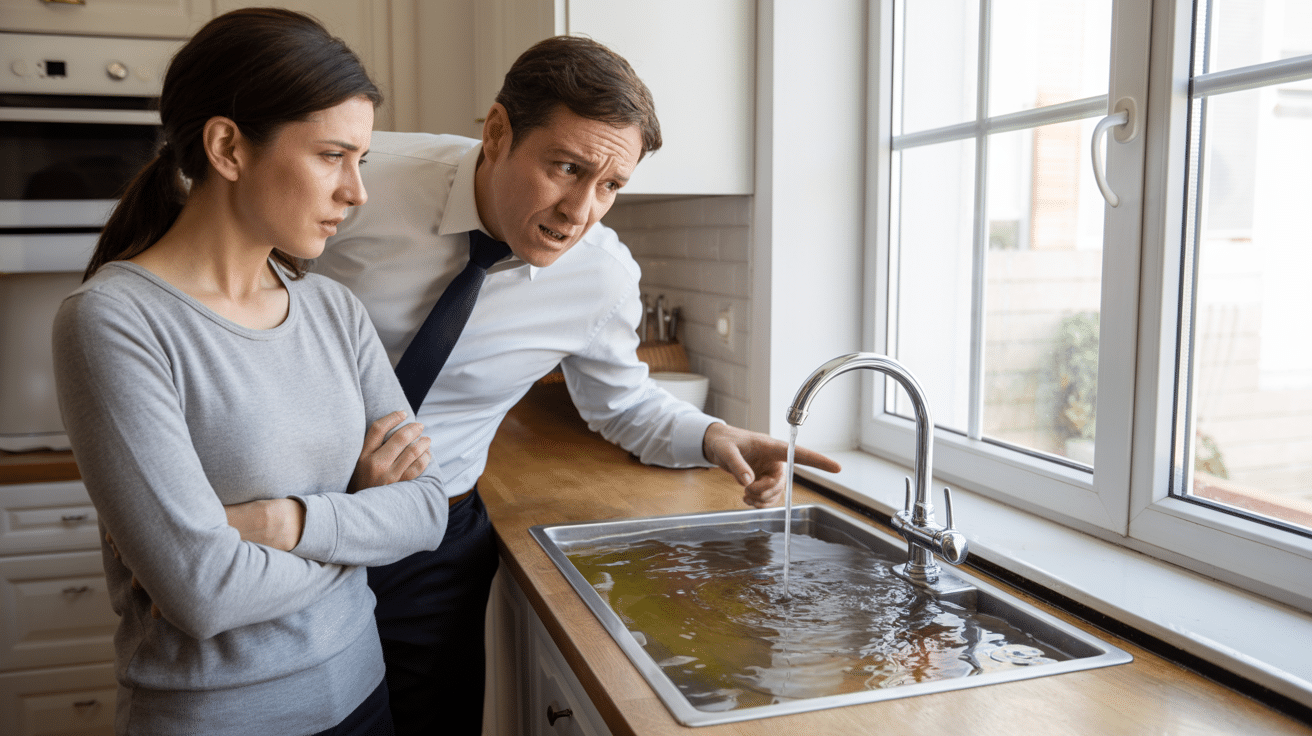
When gas mixes with air, even minuscule electrical sparks—from flicking a switch, unplugging a charger, or answering a phone—can set it off. No drama, just physics: don’t touch switches, don’t ring out, and don’t use electrics if there’s a gas smell.
Do’s and Don’ts for Electrical Safety
- Do not touch switches, sockets, or fans—just leave them as-is.
- Don’t try to power down appliances, boilers, or lights; just leave everything alone.
- Never use your phone anywhere inside or near a suspected leak.
- Don’t test smell with lighters, candles, or matches.
- Alert others by voice, not by buzzer or intercom.
- Wait to call for help until you are safely outdoors, well away from the building ([SGN Guidance](https://www.sgn.co.uk/help/emergencies/smell-gas-or-carbon-monoxide)).
Gas incidents teach us that one flick or ring can undo every other good decision you made. The spark risk is very real—and entirely avoidable.
How Soon Does Help Arrive—and What Should You Do While Waiting?
The National Gas Emergency Service usually reaches homes within an hour, sometimes faster on high-risk or public sites. Bad weather or wide-area incidents affect speed, but your call always gets triaged for safety and vulnerability.
Smart Moves After Emergency Teams Arrive
- Stay outside, even if things “seem fine.” Hidden risks can remain after the smell fades.
- Use the downtime to make sure everyone in your household, tenancy or company knows where the gas metre and shutoff are.
- Landlords and property agents: review compliance paperwork and evacuation plans.
- Book a compliance audit if there’s any “close call.”
- If vulnerable or English isn’t your first language, ask for a visual/friendly how-to next time—you can get these from Plumbers 4U.
- Log details for insurers and update tenant/staff welcome packs with what you learned. This small act prevents future confusion and raises the bar for safety.
“Every gas scare is a blueprint for smoother escapes, better coaching, and zero lost time next time. Take the upgrade.”
Where Can You Get Immediate Support or Trusted Safety Checks?
Plumbers 4U engineers provide more than just emergency fixes. We offer practical guidance—explaining your system, how to shut off safely, and stepwise what to do if you ever face it again (including visual photos or even live video walkthroughs).
Unsure about a symptom, or want to rehearse your shutdown? Call us for a free initial consult; we’ll never push services you don’t need. If you’re a landlord, letting agent, or block manager, tap us for compliance reviews, annual certificate checks, and fast documentation whenever you need it.
| Need Help With: | Trusted Authority / Service | How To Reach Out |
|---|---|---|
| Gas/CO Emergency | National Gas Emergency Service | 0800 111 999 (24/7, free) |
| Find a Gas Safe Engineer | Gas Safe Register | Online postcode check |
| Landlord Certification Rules | GOV.UK | Safety & letting guidance |
| Carbon Monoxide or Health Query | NHS | www.nhs.uk/live-well/healthy-body/carbon-monoxide-poisoning |
| Stepwise Safety/Compliance Check | Plumbers 4U | Hotline, WhatsApp, online support |
We’ll coach you through incident paperwork, compliance interviews, and future-proof your readiness. “I wasn’t sure who to call” is not a risk you or your company needs to take.
Ready for Zero-Drama Gas Safety? Plumbers 4U Are One Message Away
In a gas emergency, hesitation is the biggest threat. Taking the right steps—fast, calm, engineer-guided—protects not just buildings, but everyone under your care. Plumbers 4U brings the real world of professional safety practice to your kitchen, office, or rental property.
Every call is fielded by engineers with WRAS, G3, and Gas Safe credentials. Every fix is documented for you, your insurers, and the next compliance audit. Every question—by phone, video, or in person—gets you one clear answer: you’re not in it alone.
“The safest homes are the ones whose owners prepare before trouble ever strikes. Make your move now.”
No scare tactics. Just fast, actionable, fully compliant protection. Book help for a current gas alert, a compliance review, or even a system safety walkthrough—Plumbers 4U is ready when and how you need us.
🚰
Frequently Asked Questions
What is the safest way to respond when you first suspect a gas leak in your property?
Every moment matters if you think gas is present—calling the National Gas Emergency Service (0800 111 999) immediately is the action that can protect not just your own household, but every neighbour and colleague sharing the building. This official route is faster, more coordinated, and fully equipped compared to private calls, and places you at the front of a national safety protocol. UK regulations insist: don’t investigate, don’t try home fixes, just make the call and follow instructions. Trained responders isolate supply, handle evacuation if needed, and shut down risk across all connected properties. Pausing to “double-check” or see what happens has led to real disasters—speed is non-negotiable.
Which details make your emergency call easier and faster?
- Your full property address (including postcode)
- Description of what triggered your concern: smell, odd sound, light-headedness, hissing, visible damage
- Who is currently in the building and anyone with special needs (child, ill person, elderly)
- Whether you’ve been able to reach the metre/isolate the supply
- Any blocked exits or hazards for responders
If speech or hearing makes calling tricky, start with 18001 for Relay UK. For medical collapse or severe symptoms, call 999 as well. Official help never blames you for false alarms—the fastest reporting saves lives and keeps your insurance, compliance, and landlord obligations intact.
One minute of hesitation can change everything. Decisive action is what separates a safe outcome from a preventable emergency.
How do simple steps taken in the first moments of a gas leak dramatically improve safety?
Generating flow—ventilating with outside air and getting people outside—immediately lowers both fire and harm risk. If you can safely reach your emergency shut-off (normally next to the metre and never behind a wall of gas), turn it clockwise to “off”. Open as many doors and windows as possible without crossing the leak area. Never use switches, sockets, lights, or phones inside: sparks and static can ignite gas even when you think the air “just smells odd.” Flames, cigarettes or vapes, lighters, and anything that heats or sparks are absolutely forbidden.
What happens once you’re safely outside?
- Notify others next door or in flats on your way out, but never re-enter after leaving
- Get everyone at least 10 metres from the building
- Don’t return inside for pets or possessions—responders wear specialised breathing gear for exactly this reason
| Step | Immediate Benefit | Core Reason |
|---|---|---|
| Open windows/doors | Rapidly clears trapped gas | Reduces accumulation and risk |
| Isolate at metre | Stops further gas entering | Buys time for responders |
| No switches/phones | Avoids accidental ignition | Most blasts start with a spark |
| Evacuate fully | Keeps all outside danger zones | Protects those unable to help self |
Practised calm, straightforward instructions, and focus on people—not things—make all the difference. The safest homes rehearse evacuation just as often as a fire drill.
Why is it never safe—or legal—for unregistered individuals to carry out repairs after a gas leak is found?
UK law treats gas leaks as “notifiable events” that require full professional oversight, because the dangers go beyond just fires: explosions and chronic carbon monoxide poisoning can kill long before you realise there’s an issue. Only Gas Safe engineers (searchable on the national register) are trained, insured, and certified to check, repair, and sign off the system—this is true in homes, rentals, and workplaces. Attempted fixes—even just a “tighten up” of a joint or trying to relight a faulty appliance—can multiply danger, and result in prosecution, fines, eviction of tenants, or invalidation of every policy covering your premises.
What’s the real-world record of failed DIY or non‑certified repairs?
- Gas Safe registers hundreds of explosions, fires, and hospital admissions from well-meaning but unauthorised repairs each year
- Insurance and warranty claims for fires or burst pipes after a leak are routinely denied if evidence of uncertified efforts is found
- For landlords, a single breach of repair rules can trigger council action, heavy fines, or block lease renewal
Never turn appliances on or relight them after a leak—even if “cleared”—without explicit, written all-clear from a registered engineer. Professional companies like Plumbers 4U also back up every step with documentation, giving you a 100% secure audit trail.
The one quick tweak doesn’t exist with gas. Safety is measured by credentials, not confidence or good intentions.
What practical steps can you take today to make a future gas leak less dangerous and less overwhelming?
While no one can predict every fault, routines around service and awareness turn emergencies into calmly managed events. Book annual checks on all gas appliances—boilers, heaters, stoves—using a Gas Safe engineer, as landlord statute demands but homeowners should emulate for peace of mind. Place carbon monoxide alarms near every combustion appliance and ensure they have the BSI kitemark (EN 50291). Draw or photograph the location of your main gas shut-off and save the info on your family’s phones. Hold brief practice drills: know the shortest escape, practice finding and turning the valve, and agree on a safe meeting point.
What smart habits give you a real edge in a crisis?
- Label the shut-off valve so even a visitor could find it
- Use a visible chart (in your kitchen or utility) spelling out the “smell gas: do this next” steps
- Plumbers 4U offers property-specific safety walkthroughs—these sessions aren’t just for businesses, and often uncover setup flaws or blocked access long before trouble
| Safety Routine | Best Practice Frequency | Payoff for You or Residents |
|---|---|---|
| Engineer service & check | Annual | Lowers risk, keeps warranty valid |
| CO alarm fitted, tested | Monthly | Early warning of hidden troubles |
| Valve drill | Twice per year | Faster, calmer action under stress |
| Written/electronic checklist | Ongoing | Decision-making under pressure |
Small upgrades or schedule tweaks today mean you’ll avoid panic if tested during a future incident.
What human or animal symptoms, even if subtle, should trigger instant evacuation and a 999 call?
Often, you won’t physically see gas, especially if the leak is small or it’s actually carbon monoxide—so your strongest warning comes from how living beings react. Headache, dizziness, confusion, loss of coordination, chest tightness, retching, or collapse in people (especially the young, elderly, or those with breathing conditions) demand that you leave immediately. For pets: if they begin stumbling, become lethargic, or collapse suddenly, it’s just as urgent. Stay out, call for help, and describe what happened in full.
When does a single symptom outweigh all “wait and see” logic?
Any delay can be fatal. Even momentary confusion, especially in more than one person, is enough to prioritise evacuation over phone calls, investigation, or debate. First responders want information on who was exposed and for how long—be honest, even if you’re unsure. After evacuation, arrange for medical checks or ambulance support as standard. With carbon monoxide, symptoms may not fade away outside, so treat every case as requiring assessment.
The first warning signs are sometimes overlooked, but fast action is always remembered. When in doubt, get out.
Never rely on your own “tolerance” or ability to “push through” — respond to the warning, not the worry.
What aftercare and official records should you receive from professionals following a gas leak emergency?
Once the emergency team signals safety, only Gas Safe engineers are legally authorised to restore, test, and relight appliances or pipework. You should expect written records of tests performed, faults found, and every repair or part fitted. For landlords, this is a CP12 (gas safety certificate); for businesses, a full breakdown of asset repair and compliance. Always check the engineer’s Gas Safe ID—any reputable company will show it up front, as required. Checklist: final test readings, brand and type of any replacements, and a timeline for the next review or follow-up service.
What guarantees and support do you have as a client?
- Landlords: tenants must receive fresh CP12 and a summary of remedial work before moving back in
- Homeowners: demand post-incident reports—this speeds insurance claims, sales, and next steps if new issues appear
- Never restart any gas equipment without a signed all-clear
Plumbers 4U stands by every job with documentation, digital photos, and a clear service pathway. Clients get service reminders, aftercare follow-ups, and immediate access to help for any compliance or new repair concerns—building an unbroken thread of safety, not just fixing the last leak.
Request your documented review or emergency care today. Choosing certified aftercare and a transparent, standards-driven approach protects your household, your tenants, and your future property transactions.
